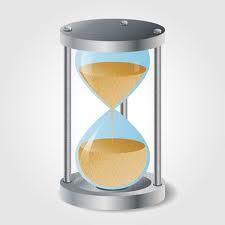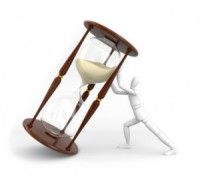Addiction
The Hourglass Shape of Addiction
Everyone is an individual, until addiction squeezes us into its narrow neck.
Posted October 9, 2012
I’ve recently started interviewing people who responded to my request for addiction biographies—for
my next book. These people offered to share the stories of their lives as addicts. Most have recovered. Some are still in process. Here I want to tell you what I’m starting to learn from them.

The interviews have taken place by Skype or phone – sometimes I see the person I’m talking to and sometimes I have to use my imagination. They seem to last an hour to an hour and a half, and they are full of painful memories – usually memories that have been rehashed many times over, while people try to make sense of them. Now they’ve got someone else rehashing them with them. Sometimes I feel like a dentist, drilling until I strike a new vein of distress or at least discomfort, and I know it must hurt, but we’ve got to get to these details if the book is to be as compelling as I want it to be. I know it hurts partly because I’ve been to similar places, and my memories of the bad times don’t seem to fade much. And I know it because I can get goose-bumps up and down my arms or tears in my eyes. So much suffering! It bowls me over. And so much loneliness – the isolation of being locked in your addiction with everyone you care about eyeing you from the outside.
But I often come away from these interviews uplifted and optimistic rather than depressed. Because just about everyone I’ve talked to has mounted a campaign against his or her addiction and eventually won, or at least formed a truce. And that takes the best of a person: courage, dedication, forebearance, creativity, and plain common sense. I’ve said it before: addicts (ex or still struggling) are some of my favourite people.
So far I'm just beginning to learn from this goldmine of personal stories. But I want to share one thing that’s struck me repeatedly.

The lives of the people I’m interviewing – and probably the lives of most addicts – have an hourglass shape to them. They start out unique: each person begins with his or her own specific culture, family environment, level of education, personality, social network, personal secrets, and all the rest. But then, when addiction takes hold, these lives start to look exactly the same. Regardless of whether it's cocaine, opiates, alcohol, or even food, that wide range of individual differences shrinks to a narrow tube – the middle of the hourglass. What I mean is that people’s addictions have this fundamental commonality: the initial discovery that whatever it is helps with anxiety or depression, it feels golden, and then with time it becomes irresistible, then it’s no longer much fun, and then it becomes the source of new anxieties and more depression. The desperation, the cover-ups, the way we turn our backs on other people, the way we turn our backs on our own selves…. seem to be the main ingredients of everyone’s addiction. Then people make whatever attempts they make to get better, to get past it, to "recover." And usually, eventually, after ten or a hundred tries, they make it. Then they start to live their own lives once more, and here’s where the hourglass starts to bulge out again, in its bottom half. Now individuality, creativity, and uniqueness get relaunched, without that yoke restricting them, and the hollow tube of mindless repetition fans out to a million possible ways to live one's life.


